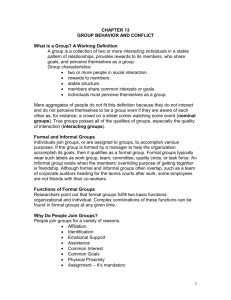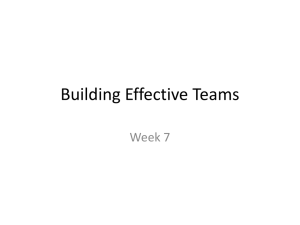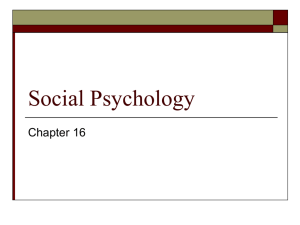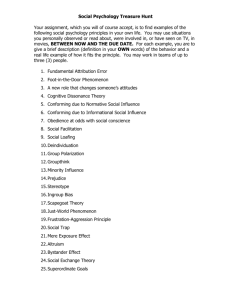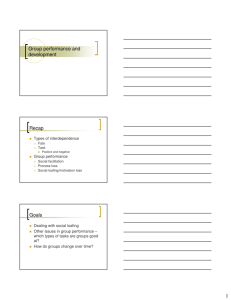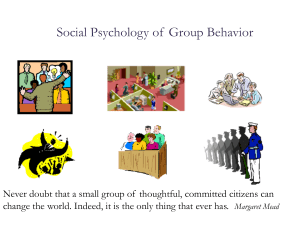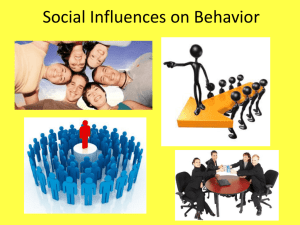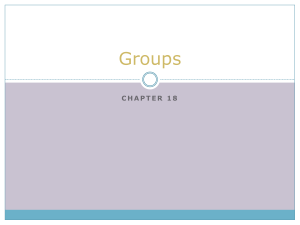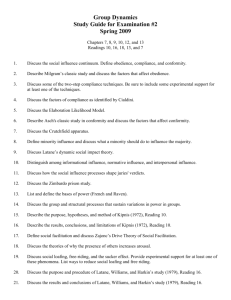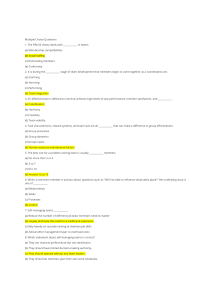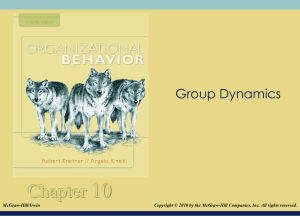Social Loafing Slides
advertisement
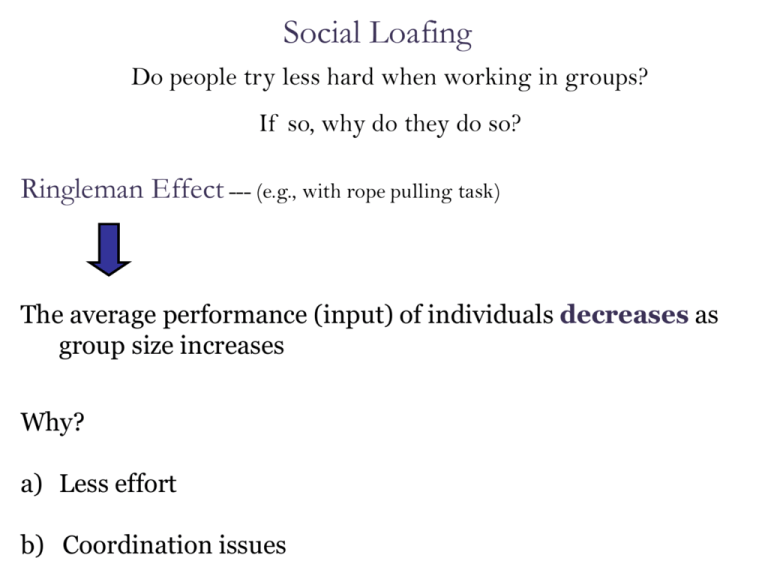
Social Loafing Do people try less hard when working in groups? If so, why do they do so? Ringleman Effect --- (e.g., with rope pulling task) The average performance (input) of individuals decreases as group size increases Why? a) Less effort b) Coordination issues Ringelmann Findings Individuals Individual Efforts (Sum) Group Effort Group/Indiv idual Ratio 1-7 764 480 .63 8-14 516 432 .84 15-21 533.7 435.4 .82 22-28 575.5 471.2 .82 15-28 1109.2 858.9 .78 Ringelmann Findings (cont.) Subject 1 Subject 2 Sum Dyad Performance 60.0 114.0 174.0 180.0 85.2 79.2 164.4 120.0 97.2 78.0 175.2 174.0 72.0 81.6 153.6 156.0 84.0 78.0 162.0 132.0 54.0 72.0 126.0 140.4 78.0 88.8 168.8 144.0 78.0 102.0 180.0 152.4 78.0 86.4 164.0 122.4 72.0 69.6 141.6 110.4 Yelling (& clapping) studies by Latane, Williams, & Harkins Alone In actual groups In pseudo-groups Less individual effort when in groups, even in “groups” when no one was present (but people thought they were) Potential productivity Actual groups Pseudo-groups 10 Sound pressure per person 8 Reduced effort (Social loafing) 6 Coordination loss 4 2 1 2 6 Group size Why less effort (loafing)? • Expectation that others are trying (or will try) less hard (equity) • Optimizing goal setting, rather than maximizing • Less social pressure on each individual group member • Less contingency between individual inputs and outputs (individuals in groups cannot be identified; anonymous) Social Pressure Social Loafing Across Cultures Alone Performance Group 30 27 24.5 23.8 23.3 24 20.8 21 18.5 18 16.5 15 United States Israel Country China The Stages of Groupthink What are the causes and consequences of groupthink? Video Antecedent Conditions Systems of Groupthink Consequences Closed-mindedness Isolated, cohesive, homogeneous decision-making group Lack of impartial leadership High stress Rationalization Squelching dissent “Mindguards” Feelings of righteousness and invulnerability Self-censorship Incomplete examination of alternatives Failure to examine risks and consequences Incomplete search for information Poor decisions Other Group Decision-Making Phenomena Collective Entrapment --- The more effort used to make a decision, the greater likelihood of sticking to that decision (even if it’s been shown to be incorrect) Common Knowledge Effect --- Information held by most group members exerts a stronger impact on final decisions Ways to Improve Group Decision-Making Leadership style (impartial, use of outside input) Brainstorming? Nominal Group Technique • Define the problem • Individuals anonymously generate solutions • Solutions presented to the group (no evaluation allowed) • Group rates solutions • Best solution is chosen (vote, consensus)
